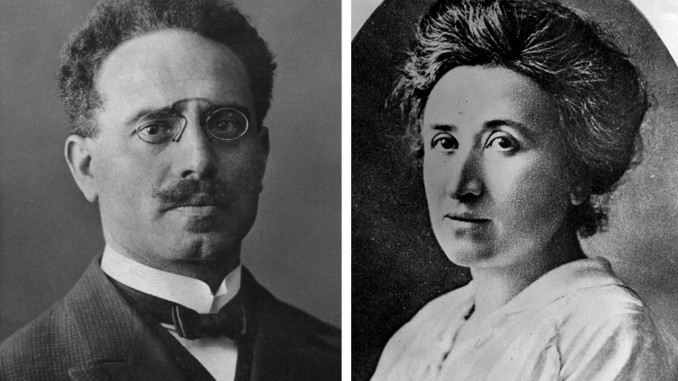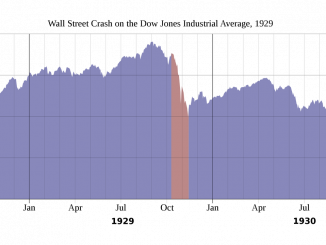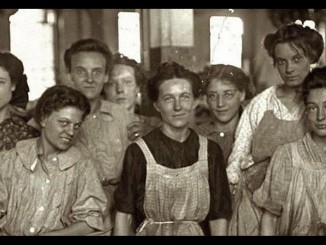
January 15 marks the anniversary of the 1919 murders of revolutionaries Rosa Luxemburg and Karl Liebknecht, two of the most prominent German socialists of the early twentieth century. They were active at a time when Germany had a powerful workers’ movement, rife with socialist ideas. When these two leaders of international socialism learned that their party had supported German involvement in World War I, they were crushed by the blow. The parliamentary leaders of their own working class party had betrayed its goal: a world without borders, unity of the workers of the world against the international capitalist rulers.
Yes, in fact, on August 14, 1914, the SPD fraction in the German parliament voted in favor of war credits, enabling the defense of the interests of German capitalism. The SPD’s truly anti-socialist chairman, Hugo Haase, is remembered for his words, “We will not desert our fatherland in its hour of need.” Luxemburg and Liebknecht saw this as a clear betrayal of socialist values. After all, their enemies were not workers from other countries, conscripted to fight in the war, but the capitalists of their own country. Luxemburg and Liebknecht worked tirelessly to oppose the war, and broke away from the SPD to form the Spartacus League. They were imprisoned in 1916-1918 for their anti-war efforts. The Spartacus League, later to become the Communist Party of Germany (KPD), opposed WWI as an imperialist war. It also had a strictly revolutionary perspective, and strove to make clear to the working class that purely parliamentary methods would never be enough.
These two revolutionaries championed the need for a government based on workers’ councils. This method of organization had been successful in Russia, a country which had overthrown the czar and created the world’s first workers’ state in 1917. They knew the workers’ state in Russia would not survive alone, isolated and attacked on all sides by the most powerful capitalist countries. A workers’ revolution was also needed in Germany.
The SPD, on the other hand, put its faith in the bourgeois German Weimar Republic, a pseudo-democratic government formed in 1918 upon the abdication of Kaiser Wilhelm II at the end of WWI. With SPD leader Friedrich Ebert as its first chancellor, the Weimar Republic fought viciously to contain the more revolutionary left currents. With Germany defeated and disarmed, their aim was to bring about a peace with capitalism, not communist revolution.
In early January of 1919, the KPD helped launch the Spartacist uprising. This involved massive workers’ street demonstrations and calls for a general strike meant to destabilize the Weimar government. The Freikorps (a German paramilitary force) crushed the uprising by orders from the SPD chancellor. On January 15, 1919, the Freikorps snatched Rosa Luxemburg and Karl Liebknecht from an apartment where friends were hiding them. Luxemburg was tortured and killed; her body dumped into a canal to be found four months later. Liebknecht was taken to a park and shot in the head.
Today, socialists still commemorate them yearly at their gravesites, celebrating the lives of these revolutionaries who fought, and died, for a better world.




